Types of Water Heaters: Which One is Most Suitable for Your Englewood Home?
With numerous options to choose from, such as traditional tanks, solar units, and tankless models, selecting a water heater can be a daunting task. These options vary in terms of energy efficiency and hot water capacity, making it essential to make an informed decision based on your family's requirements. To aid you in this process, our detailed Englewood guide offers a thorough evaluation of each water heater type. By delving deeper into the topic, you will be equipped to make a well-informed choice. Before making your final decision, it is crucial to carefully consider the specific advantages and disadvantages of each type.

Traditional Storage Tank Water Heaters
Tank-style water heaters are commonly used for heating and storing water in insulated tanks. They use gas, electric, or oil to heat the water and provide a continuous supply of hot water. This means that hot water is always available with a simple turn of the tap.
Advantages:
Tank-style water heaters typically have a lower upfront cost in comparison to other types of water heaters.
Extended warranty durations: They frequently come with extended warranty durations, offering additional protection and peace of mind.
Maintenance for tank-style water heaters is usually simple and does not involve complicated procedures.
Drawbacks:
Traditional water heaters have high operating expenses due to their lower energy efficiency, which leads to increased costs over time.
The amount of hot water available can be limited due to the tank size, resulting in a potential shortage during times of high usage.
The risk of water damage arises when the tank develops a leak or malfunction, which can result in extensive damage to the surrounding area.

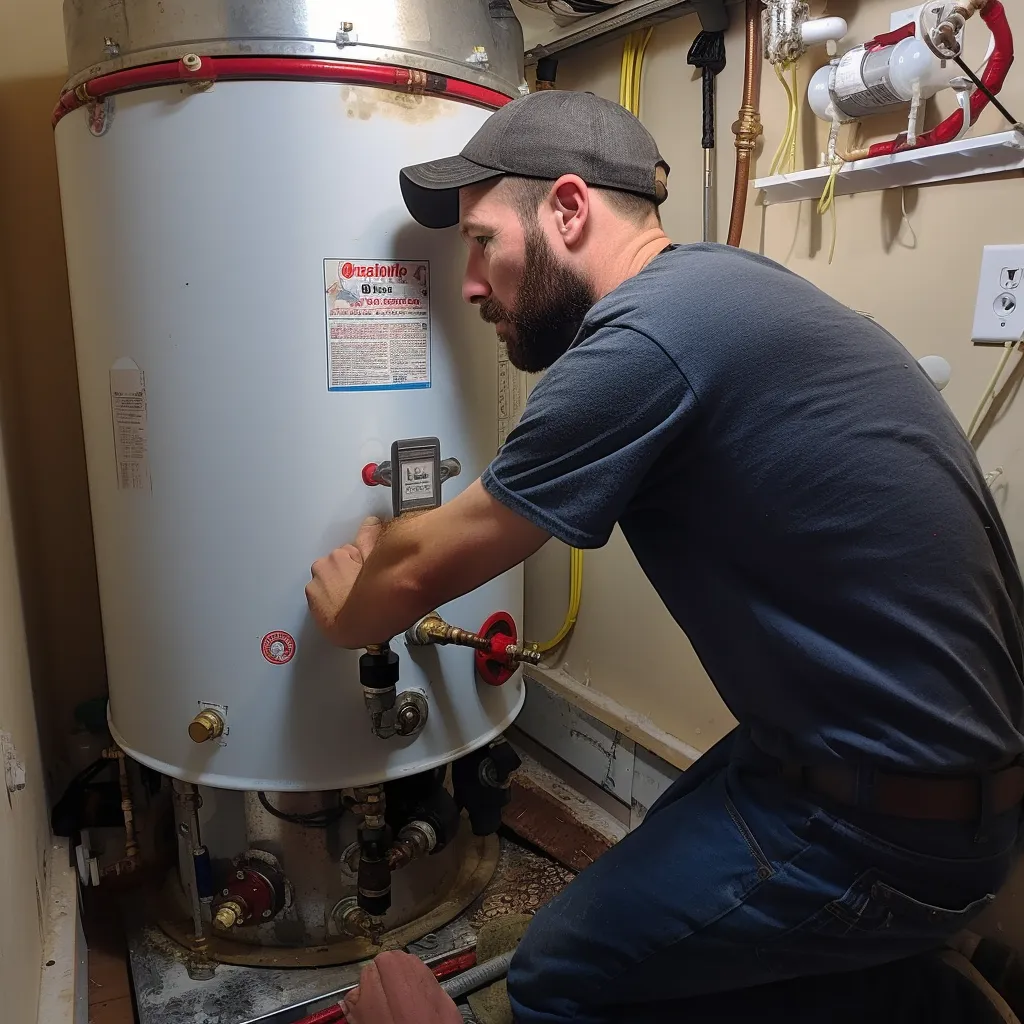
Tankless Water Heaters
Tankless water heaters provide a contemporary and effective substitute for conventional water heaters. Unlike tank-style models that continuously store and heat water, tankless units only heat water as needed. This method conserves energy and creates additional space in your home. Although the initial cost of a tankless water heater may be higher, the long-term savings on utility bills make up for it. With their energy-saving advantages, tankless water heaters offer a greener and more economical option for fulfilling your hot water requirements.
Advantages:
Installation is made easy due to the compact design.
Consistently low monthly bills are possible due to their energy-saving capabilities, which results in high energy efficiency.
Uninterrupted hot water supply: As long as there is demand, you will never run out of hot water.
Tankless water heaters are a smart and economical investment due to their longer life expectancy.
Drawbacks:
Higher initial cost in comparison to conventional water heaters.
Complications with ventilation in limited areas.
Capacity is limited for applications that require high demand.
Heat Pump Water Heaters
Heat pump water heaters are recognized for their efficiency and cost-effectiveness in heating water. They use a small compressor to remove heat from the air, making them an energy-efficient choice. The advantage is that they can provide hot water without using a substantial amount of energy, resulting in savings. Furthermore, heat pump water heaters work without electricity, ensuring a reliable supply of hot water during power outages. Experience the advantages of efficient and affordable hot water with a heat pump water heater.
Advantages:
Heat pump water heaters are known for their excellent energy efficiency, resulting in lower utility bills when compared to conventional water heaters.
Utilization of renewable energy: These water heaters make use of the air as a source of renewable energy, presenting a more sustainable and eco-friendly choice.
Hot water supply remains uninterrupted during power outages as heat pump water heaters can still deliver hot water.
Drawbacks:
Heat pump water heaters typically have a higher initial cost in comparison to conventional water heaters.
Installation may necessitate increased space and ventilation for these water heaters.
Heat pump water heaters may have a restricted capacity, which can lead to a decrease in the amount of hot water available per use.

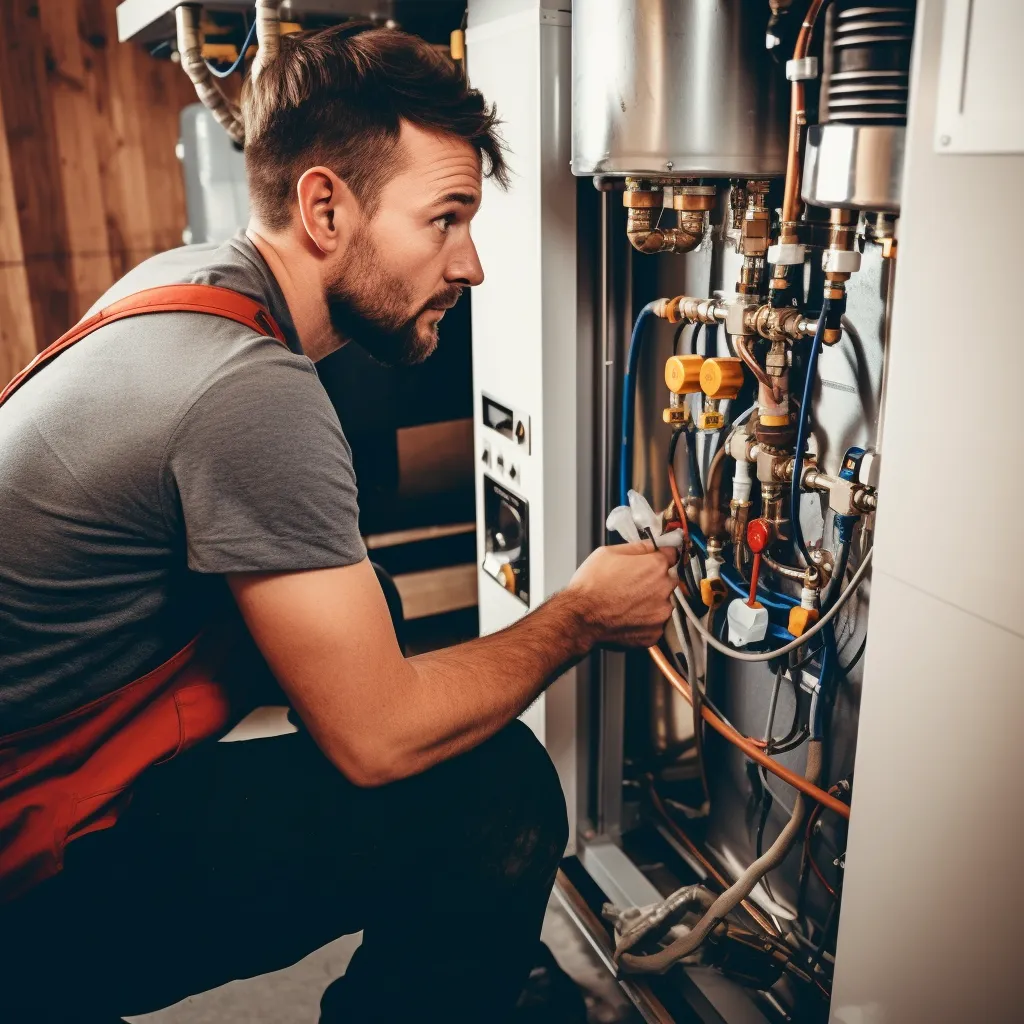
Heat Pump Hybrid Water Heaters
Combining the advantages of conventional storage tank water heaters and heat pump systems, heat pump hybrid water heaters deliver high efficiency and lower operating costs. Despite potentially higher upfront costs, their exceptional functionality and effectiveness justify their value.
Advantages:
Improved energy efficiency resulting in lower monthly utility costs.
Utilization of renewable energy for the purpose of sustainability.
Availability of hot water during power outages.
The lifespan is longer in comparison to traditional storage tank heaters.
Drawbacks:
Comparatively higher initial cost than traditional storage water heaters.
Installation challenges that may arise due to ventilation and space requirements.
Restricted capacity leads to a limited quantity of hot water accessible for each usage.
Possibility of water damage in case of tank failure or leakage.
Solar Powered Water Heaters
Solar water heaters offer a great chance to decrease monthly utility expenses and utilize renewable energy. There are two main types of solar water heaters: active and passive systems. These systems utilize solar energy to heat stored water, providing a simple and cost-efficient way to save money. By choosing a solar water heater, you can enjoy the advantages of lower energy expenses while adopting a more sustainable and eco-friendly method of water heating.
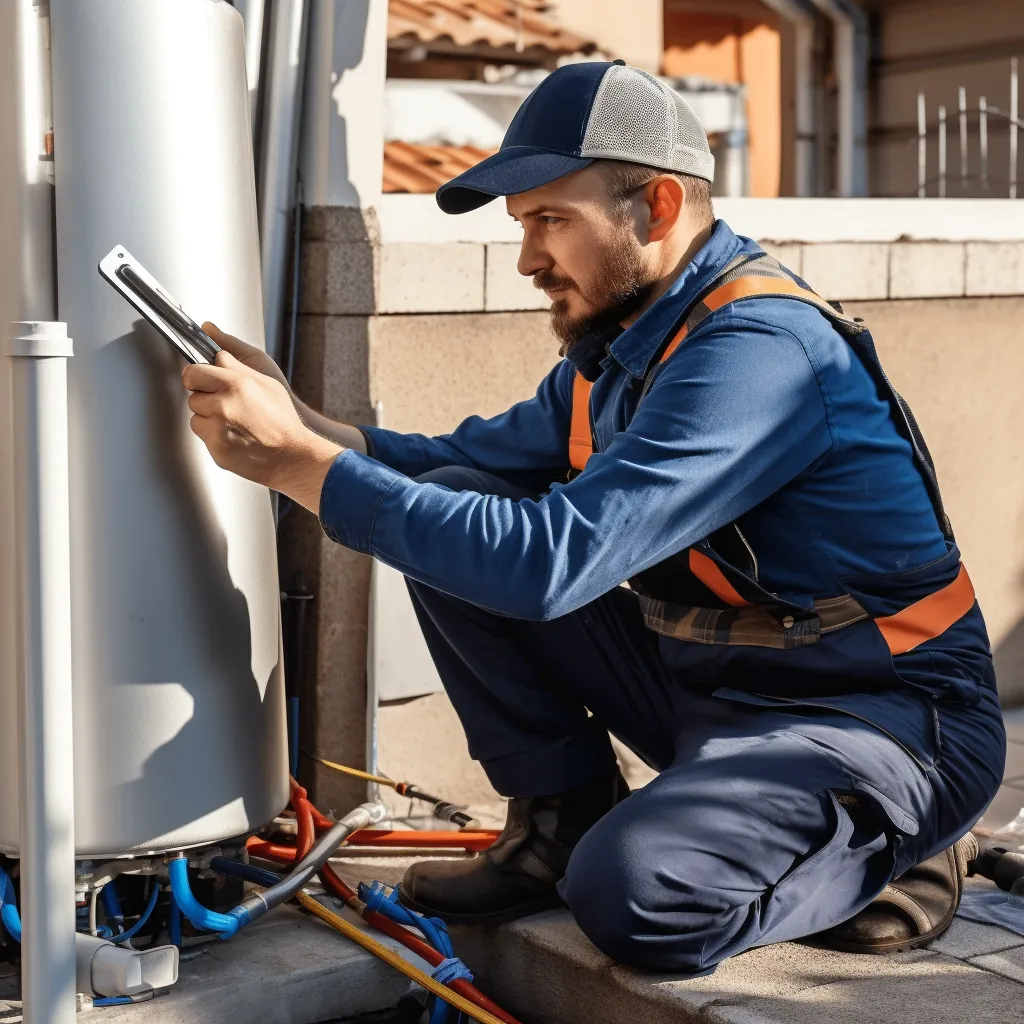
Active Systems:
Active solar water heaters function by using pumps to move heated fluid from the collectors to a storage tank for later use. These systems are recognized for their effectiveness and capacity to produce substantial quantities of hot water. By employing active systems, you can maximize the harvesting of solar energy and have an abundant supply of hot water for your household requirements.
Passive Systems:
Heated fluid is transported from the collectors to a storage tank in passive solar water heaters, relying on natural convection and utilizing solar power for water heating. These systems are known for their low installation and maintenance costs. Despite not offering as much hot water as active systems, passive solar water heaters are a cost-effective and environmentally friendly choice to meet hot water needs by harnessing solar energy.
Advantages:
Cost savings on energy bills can be achieved due to the high efficiency.
Utilizing the sun's renewable energy.
Traditional water heaters have a shorter lifespan in comparison.
Drawbacks:
Compared to traditional storage tank heaters, there is a higher initial cost.
Installation could be complicated due to additional space and equipment requirements.
Potential for water damage in the event of malfunction or damage to solar panels.


Point-of-Use Water Heaters
Point-of-use water heaters provide the convenience of instant hot water in a small and efficient system. They are ideal for small areas or for those who want to avoid the costs and inefficiencies of traditional storage tanks. These heaters eliminate the need for long pipe runs and reduce heat loss by delivering hot water directly at the point of use.
Advantages:
Lower monthly utility expenses due to high energy efficiency.
Compact size enables convenient installation and maintenance in limited areas.
Storage tank heaters have a longer lifespan when compared to other types of heaters.
Drawbacks:
Increased upfront expenses and the possibility of requiring additional ventilation and installation area.
Decreased hot water capacity, resulting in limited availability per use.
Increased potential for water damage caused by tank failure or leaks in tankless water heaters.
Water Heaters With Hydronic Boilers
Hydronic boilers utilize water instead of air to circulate heat throughout your space, making them a highly efficient heating system. They can provide both hot water for domestic use and space heating, which makes them ideal for colder climates. Additionally, hydronic boilers can be combined with tank water heaters to meet your hot water needs at a lower cost.
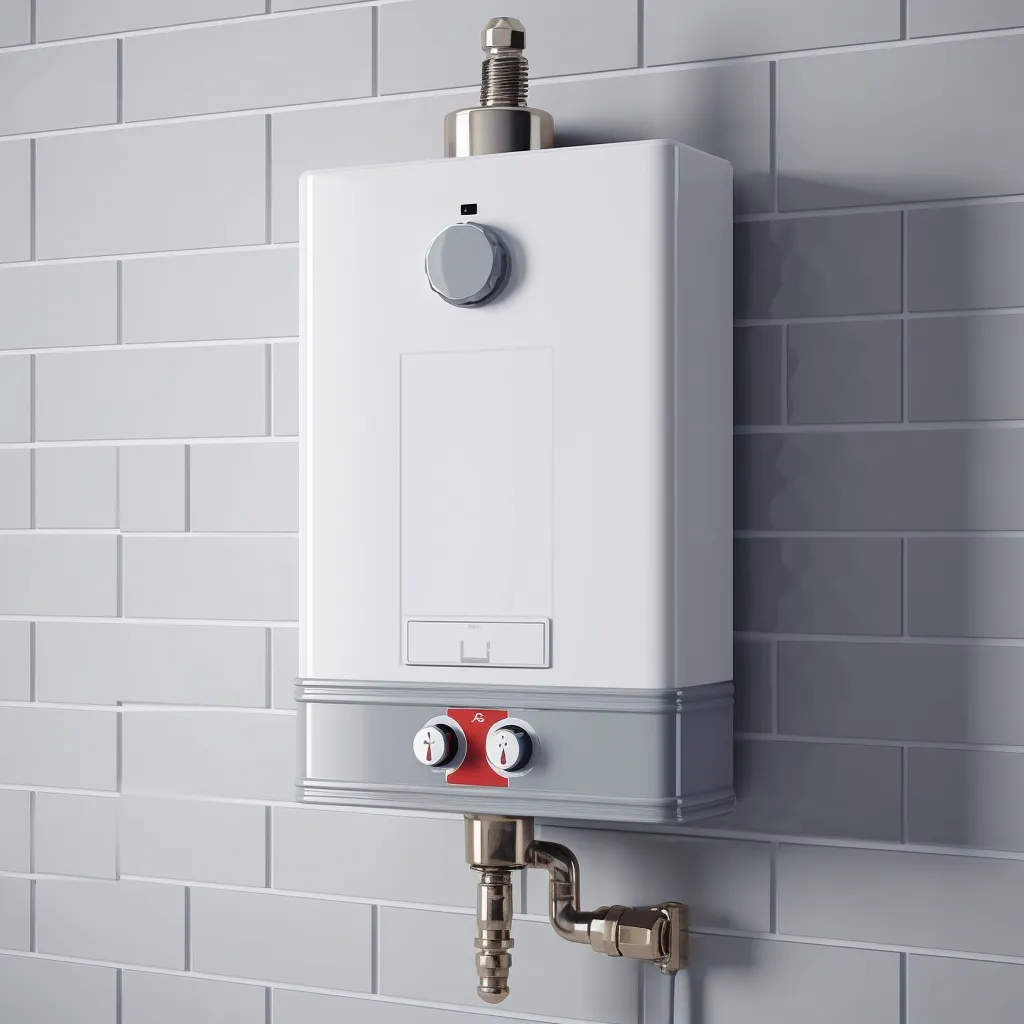
Advantages:
Lower monthly utility bills can be achieved due to high efficiency.
Provides heating for both living spaces and hot water for household use.
Installation in tight spaces made easy due to its compact design.
Longer lifespan in comparison to traditional tank water heaters.
Drawbacks:
Increased upfront expenses in contrast to conventional storage models.
Reduced capacity leads to a decreased amount of hot water per use.
Potential for noise production during operation.
Possible disqualification for specific utility rebates or incentives.
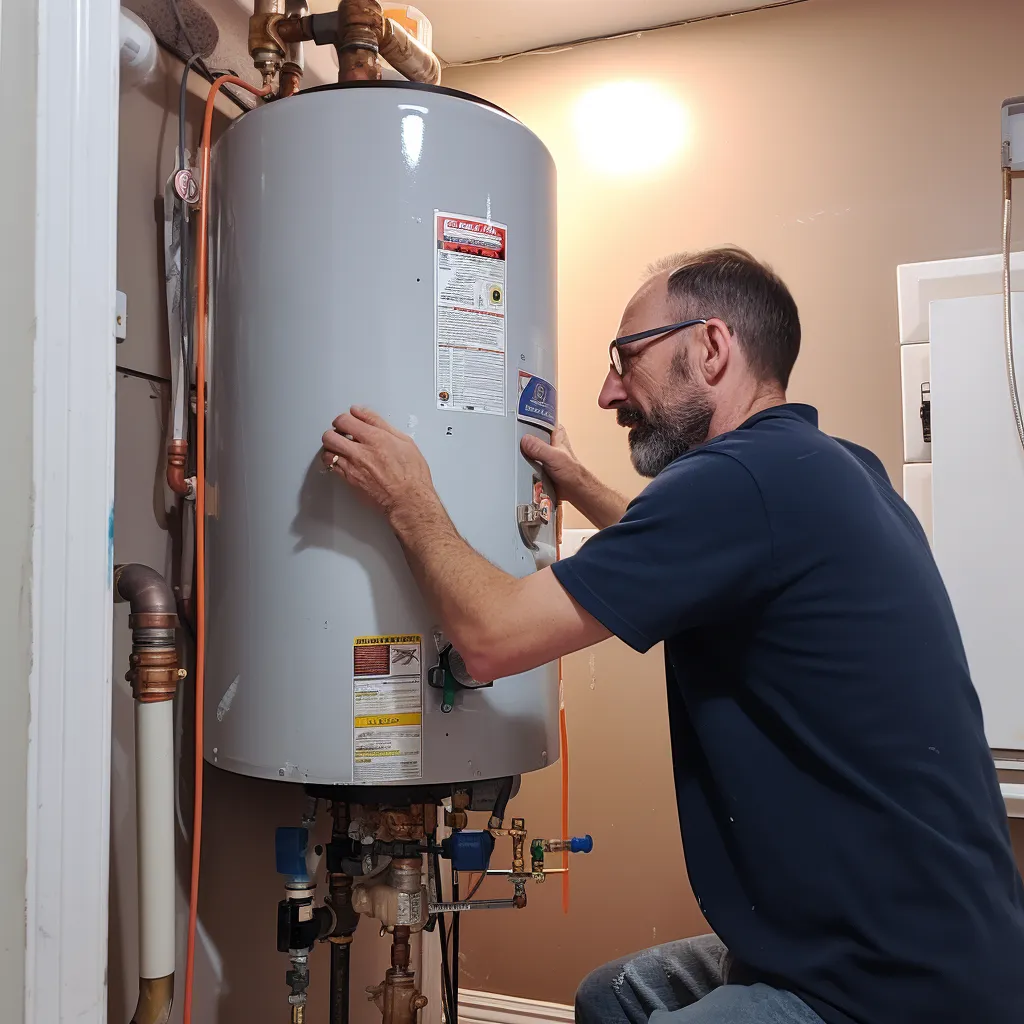
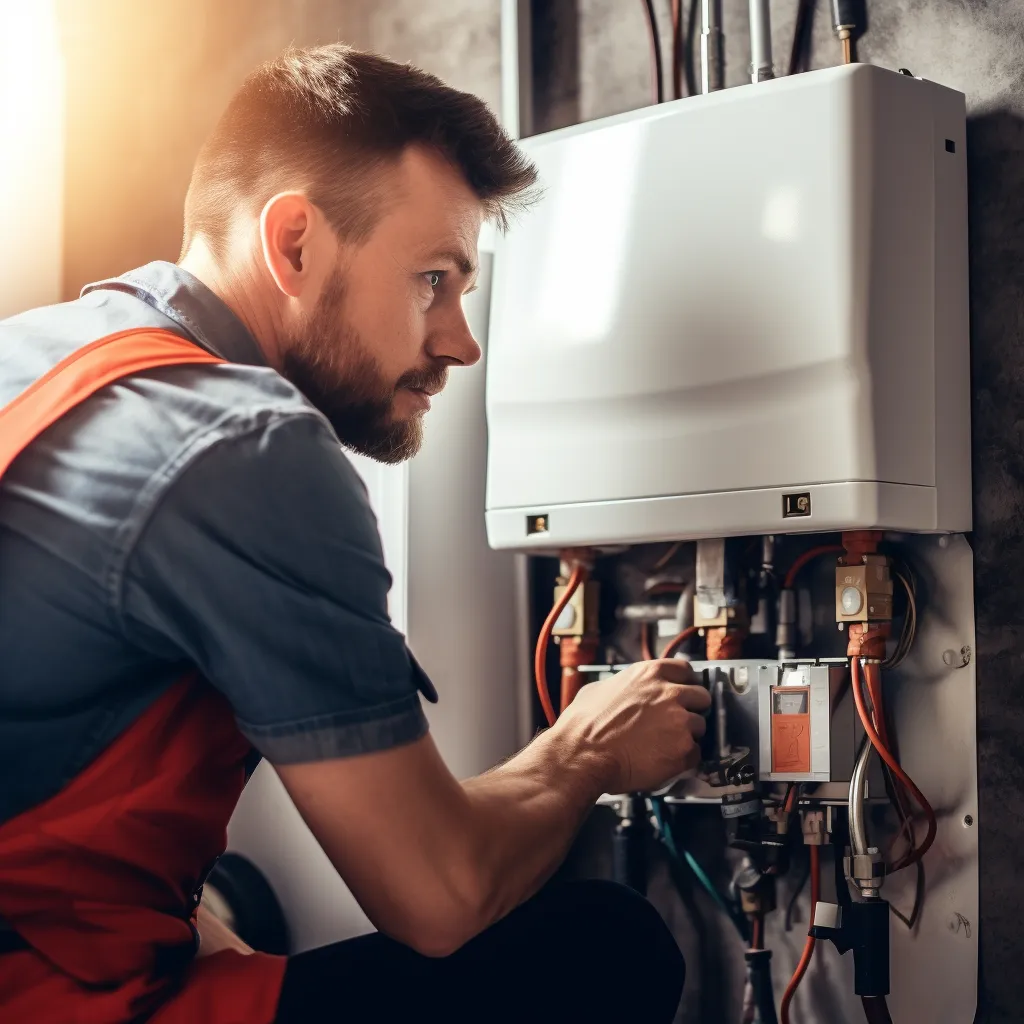
Smart Water Heaters
Upgrade your water heating system with the latest technology of smart water heaters which are designed for efficient hot water production. Manage your hot water consumption and expenses from anywhere by using Wi-Fi enabled thermostats. With the convenience of your smartphone, you can easily control the temperature settings and customize them based on your preferences.
Advantages:
Conveniently manage your water heater from smartphones or other devices through remote control using a Wi-Fi enabled thermostat.
Energy-saving features, like vacation mode, can help decrease monthly energy costs.
Installation and maintenance are made easier in compact spaces due to the small size.
Greater longevity in comparison to conventional storage tank heaters.
Drawbacks:
Increased cost in comparison to conventional storage water heaters.
Certain utility rebates or incentives might not be applicable.
Compatibility with newer devices may necessitate additional software updates.
Possible security hazards if the Wi-Fi connection is not secure.
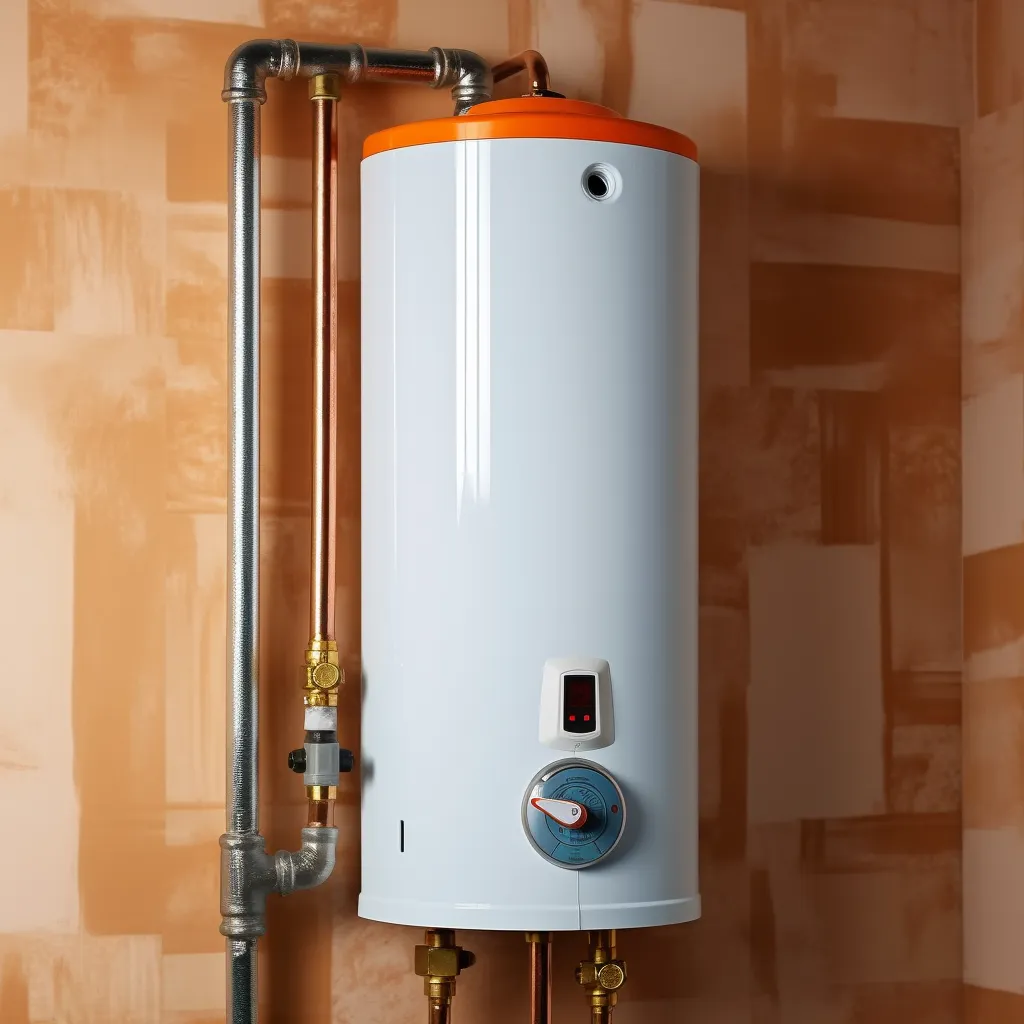
Condensing Water Heaters
Condensing water heaters combine features of tankless and traditional storage tank water heaters, providing the advantages of both. These models use advanced technology to extract heat from exhaust gases, increasing efficiency and reducing costs. By utilizing heat that would otherwise be lost, condensing water heaters offer improved performance and energy efficiency.
Advantages:
The energy efficiency is high, which leads to reduced utility expenses.
Greater longevity when compared to conventional tank water heaters.
Availability of hot water during power outages.
Drawbacks:
Increased upfront expense.
Requirements for space and ventilation.
Hot water capacity is limited.
Risk of water damage if the tank fails or leaks.

Choosing the appropriate water heater for your residence
Insufficient hot water can be a result of a water heater that is too small, whereas an oversized water heater can be expensive and take up unnecessary space. To find the right size water heater for your Englewood family's needs, take into account your lifestyle and how much hot water you use on a daily basis. By choosing the correct size, you can have affordable home comfort and a sufficient amount of hot water that meets your needs.
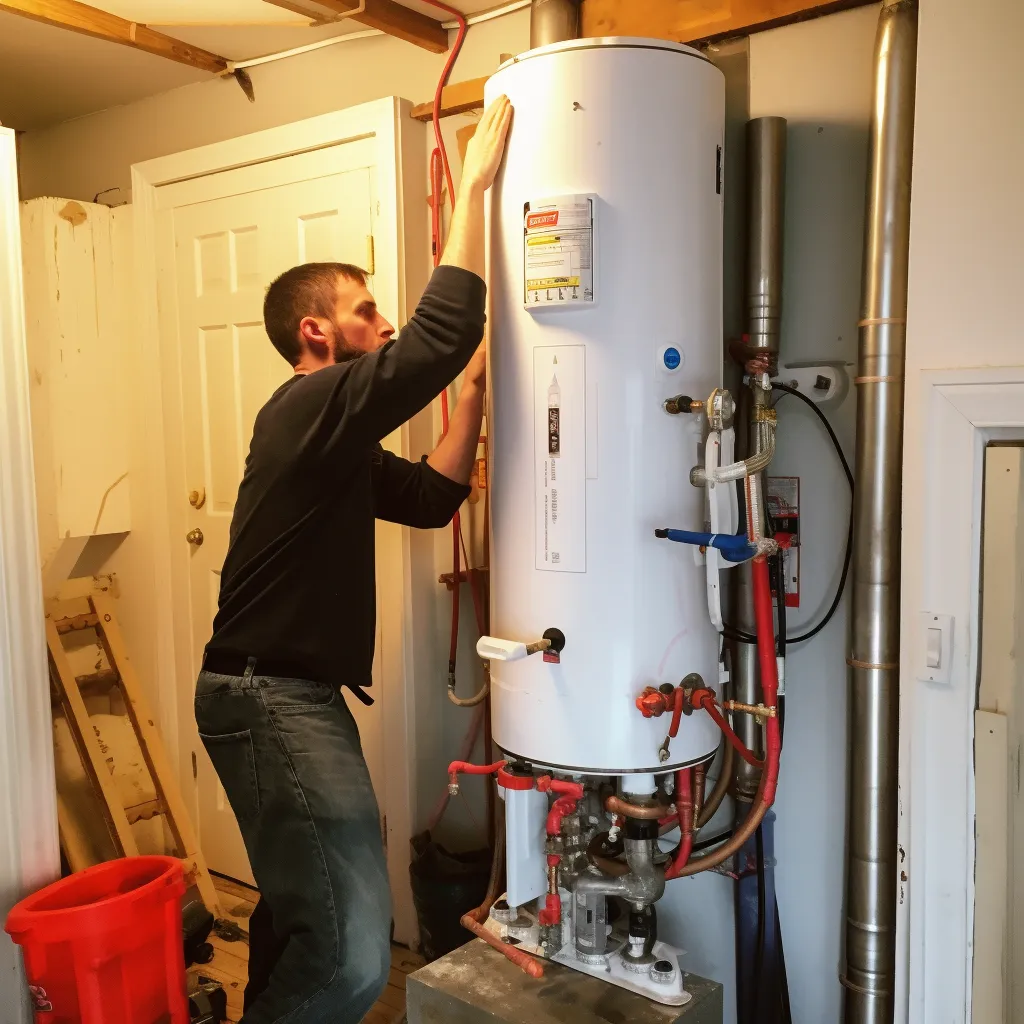
When is the appropriate time to replace your water heater?
Having a properly functioning water heater is essential for ensuring that your home's plumbing system works correctly and provides hot water for everyday tasks like showering, washing dishes, and doing laundry. Typically, water heaters have a lifespan of about 10-15 years. If your water heater is already at or past this age, it's a smart idea to think about investing in a replacement. Upgrading to a newer model guarantees a dependable supply of hot water and can help prevent potential problems and expensive repairs that come with using an older unit.
Here are a few indicators that suggest it might be necessary to contemplate replacing your water heater:
Leakage of the tank.
Unusual sounds.
Hot water that is discolored and rusty.
Insufficient supply of warm water.
Water temperature fluctuations.
Increased monthly utility costs.
Although the installation expense for a new water heater can be substantial, the potential advantages of better energy efficiency and dependable operation make it a valuable investment. An authorized plumber can assess your individual requirements, suggest the appropriate type and capacity of water heater, and guarantee proper installation for maximum efficiency and durability.
Tips for maintaining the efficiency of your water heater
Maintaining your water heater on a regular basis is crucial in order to avoid problems and preserve its efficiency. By adhering to easy maintenance practices, you can ensure that your water heater operates smoothly and provides you with cost-effective and dependable hot water.
Benefits of enlisting the services of a licensed plumber to replace your water heater
When contemplating the decision of replacing your water heater, it may be tempting to try doing it yourself. Nevertheless, it is important to consider the benefits of hiring a professional plumber.
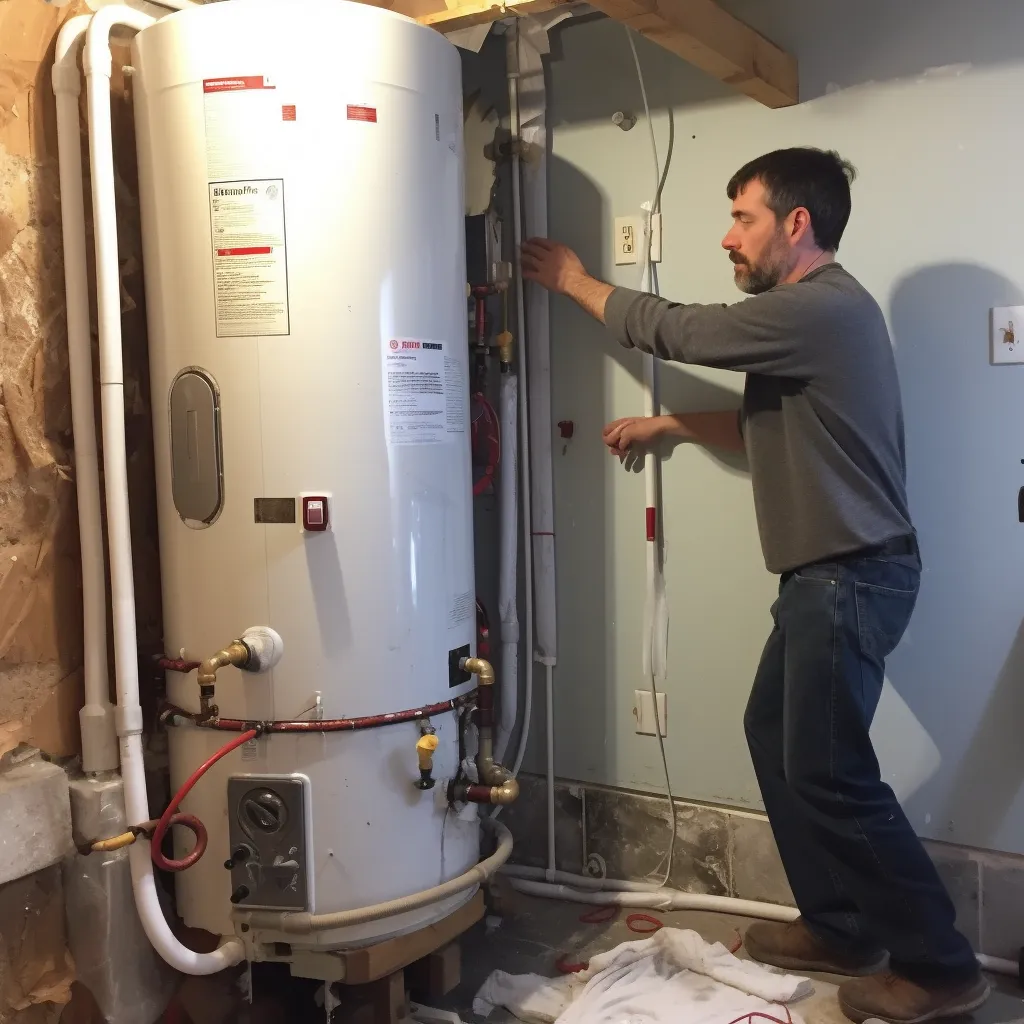
Installation of a new water heater can be safely and efficiently done by professionals who have the necessary training and knowledge. They can also offer expert advice on the best type and size of water heater that suits your needs.
Licensed plumbers guarantee that the installation of your water heater complies with the building codes and safety standards in your local area.
Professionals have the ability to efficiently identify and resolve any problems that may occur during installation, ensuring a seamless process.
Plumbers possess the required tools and equipment to perform the installation efficiently.
Engaging a licensed plumber is advantageous when replacing a water heater, as it enables time and cost savings while preventing potential problems, so contact us on our website Water Heater Englewood to use such services.
Contact Us
GET IN FULL TOUCH
PHONE: 941-307-7515
EMAIL:
david@waterheaterenglewood.com
David's Plumbing
Englewood, FL 34224
